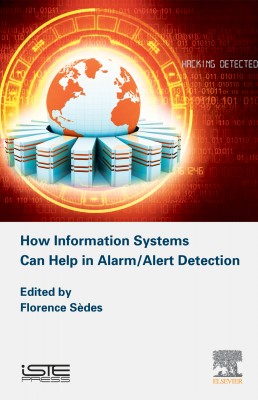
Confronting the questions related to the paradigm shift between a normal operational mode and that of crisis management requires thinking about how this change takes place: through a mechanism for feedback or warning, a decision, or a change in type of governance. The monitoring of information required by this shift, whether in an information system, in its interfaces or in the decision-making process, imposes new constraints or, on the contrary, calls for certain relaxations.
Recent research has highlighted the pitfalls of alarm/alert detection using such systems: false alarms, the dissemination of false information (fakes, spam), and distorted alerts which arrive too late or never arrive at all, failing to pass the filter of access policies. At the same time, genuine alerts are not always heard in a crowded social media sphere: they are identified, but sometimes too late.
Exploring the strengths and limitations of the role of information systems in alarm/alert detection, this book provides a selection of viewpoints on the primary issues of the field, drawing on both case studies and theoretical work. It includes chapters dedicated to alarm prediction from Big Data, alerts in the context of smart cities and “mobiquitous” smartphone computing, and the potential of information systems for alerts related to ecology (extinction of species), pharmacology or meteorology (floods, natural hazards, etc.).
1. Predicting Alarms through Big Data Analytics: Feedback from Industry Pilots, Christophe Ponsard, Annick Majchrowski, Mathieu Goeminne.
2. Mobility and Prediction: an Asset for Crisis Management, Nicolas Gutowski, Tassadit Amghar, Olivier Camp, Slimane Hammoudi.
3. Smartphone Applications: a Means to Promote Emergency Management in France?, Johnny Douvinet.
4. Mobiquitous Systems Applied to Earthquake Monitoring: the SISMAPP Project, Anne-Marie Lesas.
5. Information Systems for Supporting Strategic Decisions and Alerts in Pharmacovigilance, Yannick Bardie, Thérèse Libourel.
6. An Ontologically-based Trajectory Modeling Approach for an Early Warning System, Jamal Malki, Alain Bouju.
7. Toward a Modeling of Population Behaviors in Crisis Situations, Elsa Negre, Maude Arru, Camille Rosenthal-Sabroux.
8. Online Social Network Phenomena: Buzz, Rumor and Spam, Manel Mezghani, Mahdi Washha, Florence Sèdes.
9. How Can Computer Tools Improve Early Warnings for Wildlife Diseases?,
Pierpaolo Brena, Dominique Gauthier, Antoine Humeau, Florence Baurier, Frédéric Dej, Karin Lemberger, Jean-Yves Chollet, Anouk Decors.
Florence Sèdes is Professor of Computer Science at Paul Sabatier University, Toulouse, France. Her research focuses on data science, and she has published many books and articles and advised more than 30 PhDs. She leads various international, European and national projects on personal (meta)data privacy and management with applications to deep/machine learning for alert, spam and rumor detection, social emotion and interaction.